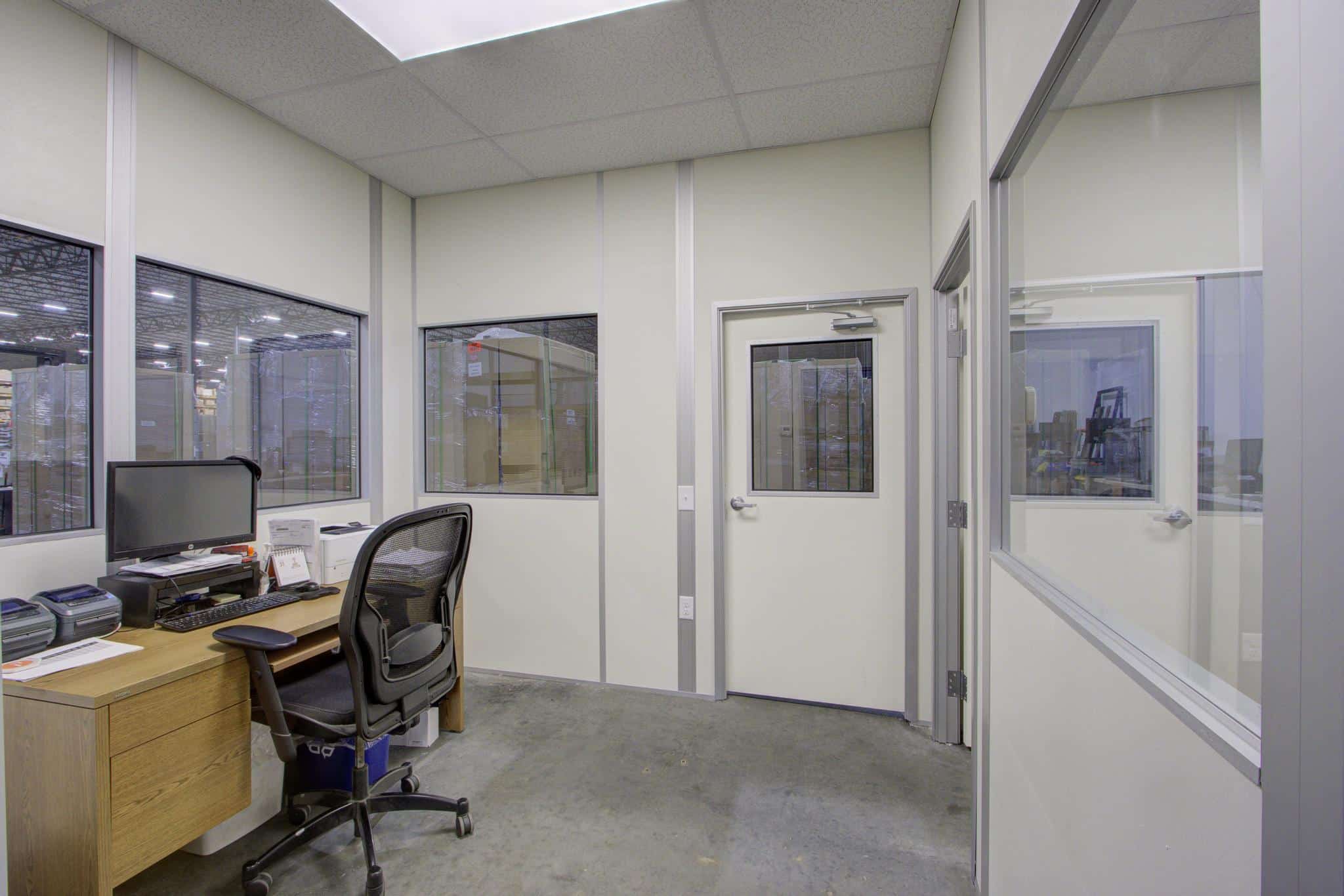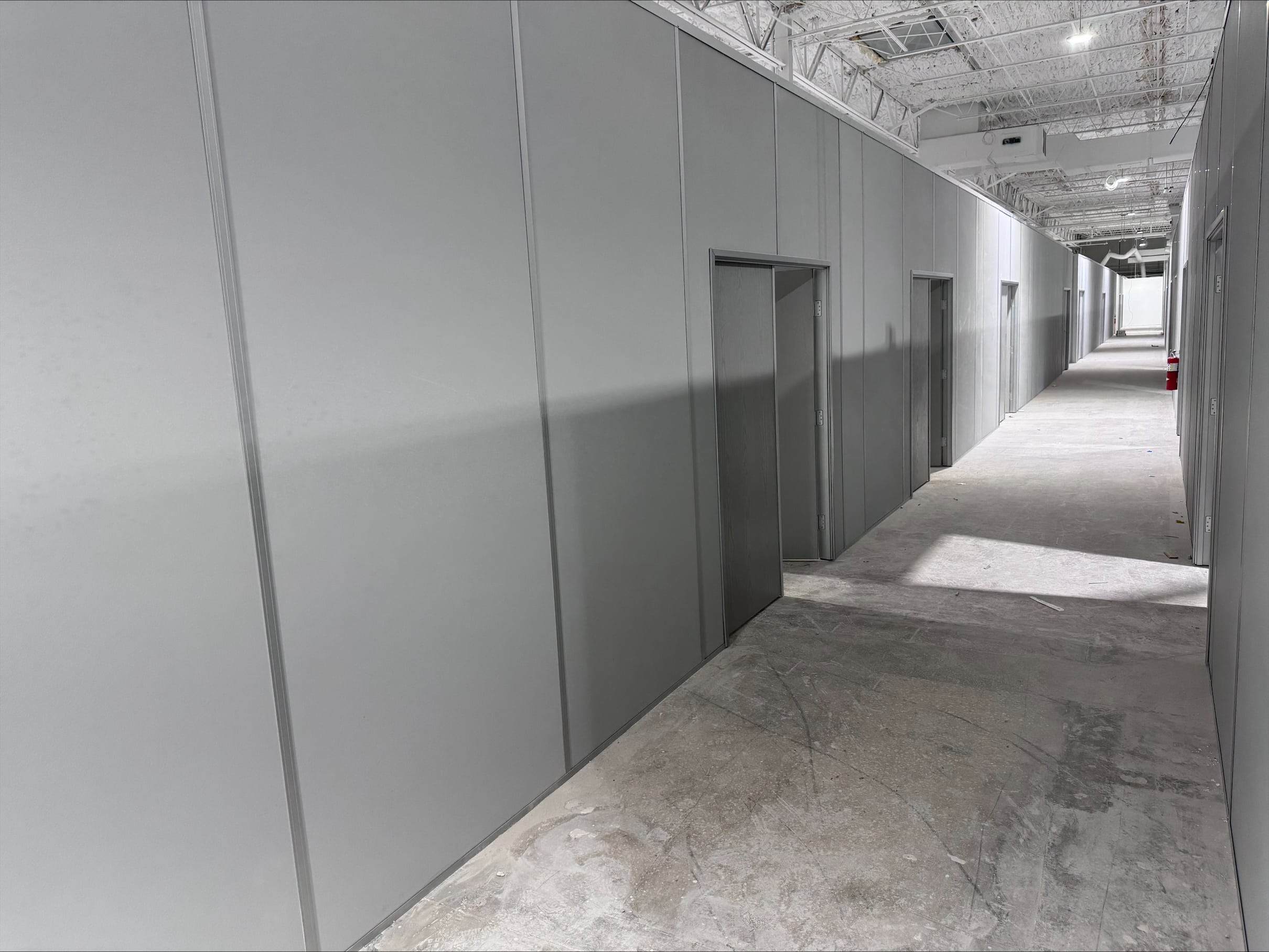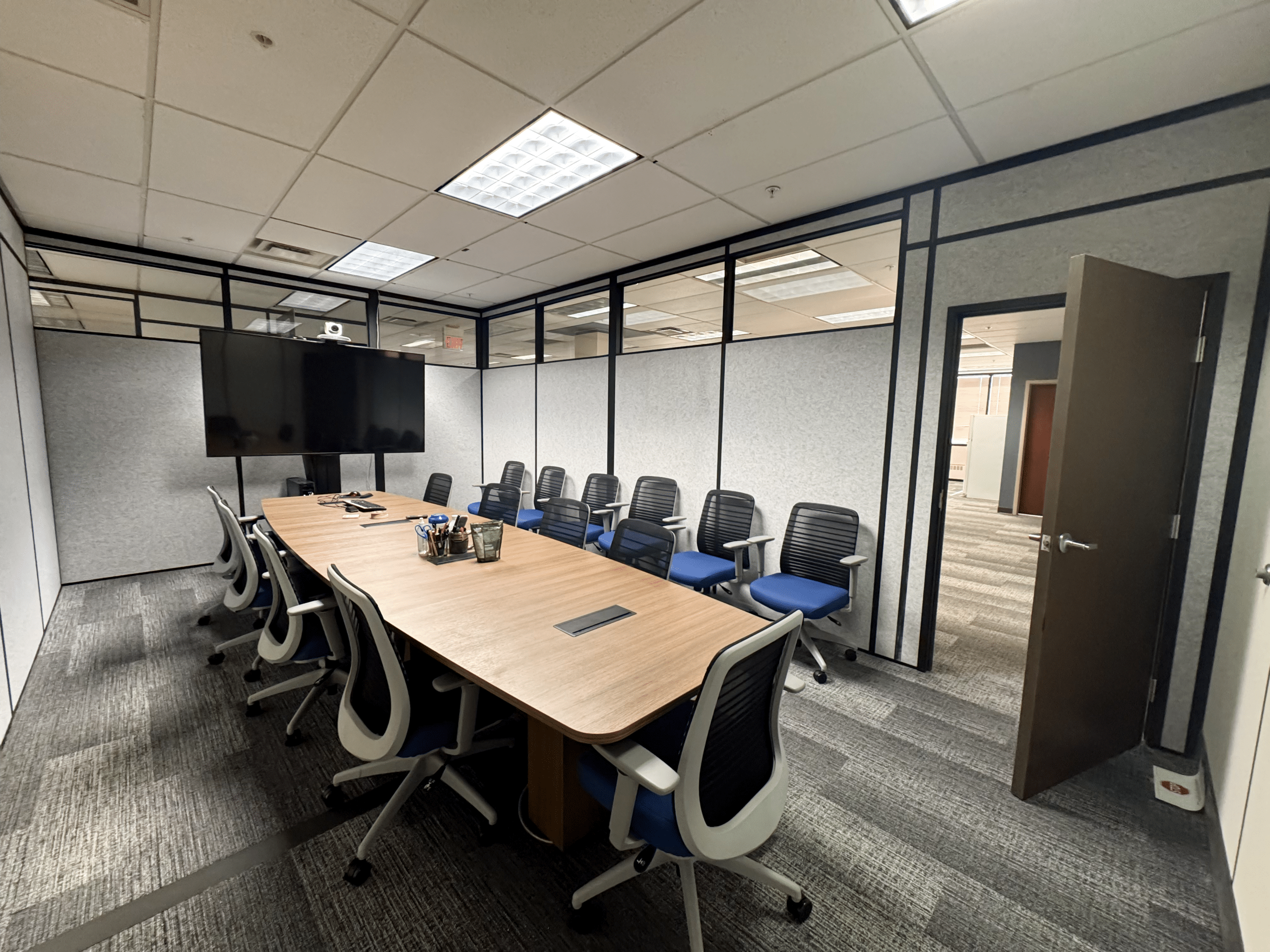A construction project often starts out with a clear plan. Then, at some point, some aspect falls behind, and a delay causes more delays. You’re hit with a change order, prices increase. What was supposed to take three months and within your budget turns into six, at a much higher price. What happened?
With traditional construction, there are simply too many variables on-site to keep everything on track.
Modular construction works differently, however. In this article, we’ll take a look at the benefits that enable it to tackle these issues so effectively.
What Are the Benefits of Modular Buildings?

Construction in the traditional sense is something that is seen as happening on a job site. A process with various subcontractors, loud tools, and months (or years) of waiting. But with modular, all that is avoided.
The parts are built off-site, usually in a factory, and then brought to the location and assembled there. Because most of the work is done ahead of time, it saves a lot of hassle. You don’t have to worry as much about bad weather slowing things down, and in many cases, the whole thing comes together much quicker than you’d expect.
There’s also the cost factor. Because the process is controlled, you’re far less likely to get hit with surprise expenses or change orders.
Modular construction isn’t better across the board. There are some cases in which it may be better simply to use traditional “stick-built” construction. However, for many businesses, and especially those with time and cost constraints, it’s worth consideration.
Here are some of the top benefits of modular buildings.
1. Faster Build Times
Speed is one of the advantages of choosing modular buildings. Most normal construction projects can stretch on for months. But with modular, since the parts are built ahead of time, usually in a factory, things move along faster once they reach the job site.
In fact, site prep and building assembly often happen at the same time. So, while crews are getting the ground ready, the structure is already being put together somewhere else. That overlap can shave weeks (and sometimes more) off the total timeline.
Weather is also less of a problem, too. Rain and snow may slow down traditional construction, but the factory work continues unaffected. And once everything arrives, putting it in place takes much less time than building from scratch.
Allied Modular’s systems are often installed in just a few days, depending on the project. For businesses on a schedule, that kind of turnaround makes a big difference.
2. Lower Costs
Modular construction often ends up being easier on the budget as well. Since most of the building happens in a factory, there’s less waste, fewer delays, and smaller crews.
That alone can cut down a lot of the overall cost.
You also avoid some of the extra expenses that come with traditional job sites. Things like longer equipment rentals, on-site security, and lost time from weather can all add up. With modular, many of those problems are removed from the equation.
Pricing tends to be more predictable, too. At Allied Modular, quotes are clear from the beginning, and we’re in principle against change orders.
You’ll know what to expect, and that makes it easier to plan ahead.
3. Flexibility

Not every space is the same. And not every business works the same way, either. The great part about modular buildings is that you can set them up how you want. A few offices. A big open area. Something in between. They are customizable.
Also, with modular, you’re more adaptable to changing circumstances, whether that’s expansion or a move.
In other words, when your business needs to change, you don’t have to start from scratch. In many cases, you can take your building with you, or add more to what’s already there.
At Allied Modular, there are choices. Different materials, different looks. Some people want a cleanroom. Others need a guard shack. Whatever the job is, it can be built around that.
4. Less Waste, Better for the Environment
A lot gets thrown out on regular job sites. Wood. Plastic. Leftover drywall. This isn’t the case with modular.
Since the parts are made in a factory, there’s more control. Crews only use what they need. Extra materials don’t just sit around, and much of it gets reused.
There’s also less back-and-forth. Fewer trucks going in and out means less fuel burned. That’s good for the planet and good for traffic, too.
Some systems even use recycled materials from the start. Others may focus on saving energy after the building goes up. If you’re trying to build green or aim for LEED, modular makes that easier.
5. Tough & Built to Last

People sometimes think modular buildings are just temporary, but this is a myth.
When they’re built right, they hold up just as well as traditional construction. In some cases, even better.
Since everything is made in a controlled environment, the parts are more consistent so there are fewer problems later.
And once it’s on-site, the structure comes together clean. Crews know how each piece fits because it’s all made to spec.
Additionally, these systems meet local building codes and often go beyond them.
So the finished space isn’t only fast. It’s also built to last for a long time, and in fact can last just as long or longer than traditional buildings.
The Bottom Line
Modular buildings make the building process much easier. You get the space you need without waiting months or dealing with the mess of a full build. It goes up faster. It’s cleaner. And in many cases, it even costs less. What’s more, the design can change as your needs change.
Interested in building with modular? Reach out to our team of experts today to plan your new project and get a quote:
FAQs About the Benefits of Modular Buildings
1. How long do modular buildings last?
As we mentioned already, modular buildings can last just as long or longer than traditional buildings. In other words, many (assuming they’re taken care of well) can last for 30 years or more.
2. Can modular buildings be financed?
Some companies offer financing, but not all. Others work with outside lenders. Each manufacturer will be different.
3. How long does installation take?
Some small projects can be up within a few days. Ones that are bigger and more complex can take a couple of weeks. In either case, it’s much faster than traditional construction.




